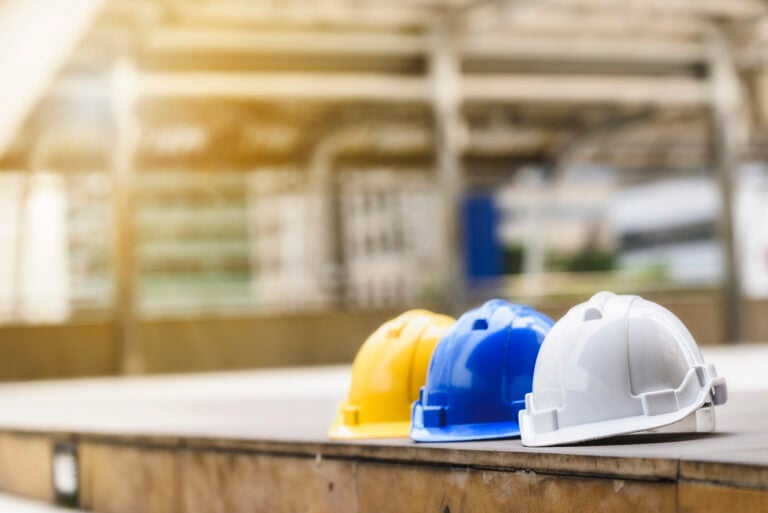What keeps you up at night? Employee mental health and wellness was the primary topic discussed at the second annual safety roundtable held during AWCI’s Industry Leaders Conference in October. Chris Sanders of Valley Interior Systems, Cheryl Berman of Brady West and Ed Hanley of the Raymond Group led the discussion. Berman and Hanley have both served as co-chairs of the AWCI Safety Directors Committee, and Sanders has a passion for spreading the word on mental health and safety issues. As a founding member of 2tuff2talk, he understands the unique issues that construction workers face, especially those in the wall and ceiling trades.
So what keeps safety professionals from sleeping? Not knowing what they don’t know. This elicited questions about how to tell if an employee is at risk for suicide or mental health issues.
Part of the handouts made available included poker chips and wallet cards with a listing of some of the suicide risk warning signs. It was noted that without professional training, signs of suicide and depression are sometimes hard to recognize.
Several strategies were shared on how to handle employees who want or need help, including offering them the choice of using your phone or theirs to call the 988 hotline, and follow-up strategies after initial counseling. Resources for assistance and training were discussed (see the Resources listed below).
The next item discussed was the company’s plan if an at-risk employee is identified. As expected, most participants did not have a plan, but some did and they shared their experiences. It was eye-opening to find out how many companies have had to deal with a suicide, suicide attempt or at-risk individual within the past few months. Resources that can help with plan development include the Center for Construction Research and Training, Vital Cog for suicide prevention in the workplace and the TALK program from Ohio State University.
Several personal stories were also shared, including one participant who had employees treat her like a mother-sister-wife-grief counselor. They would confide personal issues that should have been reserved for HR, but the safety professional making jobsite visits became the go-to resource for help.
The need for training at all levels became obvious, including how to recognize mental health warning signs, what to do when they are recognized and how to listen to workers who may have problems. Listening and personal interaction is difficult for most construction workers in the “tough guy” environment of the construction workplace. One company has a training program that provides program graduates with “I’ll Help” helmet stickers. This allows workers identify who they can talk to when having a crisis.
One participant noted that the best places to post resources are in the porta-johns and on pre-task plan boards. This included the name and cell number of contact persons who can help. Another noted that open-door policies were helpful so that employees could reach key contacts at their own company.
All agreed that education and awareness of mental health issues are necessary, and the final topic was getting the word out. Several strategies were shared, including video training, lunch-and-learn sessions, toolbox talks and pocket reminders like poker chips that could initiate discussion. One of the best resources noted was the simple fact of getting to know employees. Understanding their home situation, what is going on with their family, and what stresses they may be facing outside of work can be the best indicator of who may be at risk.
Over the coming months, AWCI will showcase some of the discussion items in videos, webinars and documents, so stay tuned.
Don Allen, PE, SE, LEED AP, is AWCI’s director of technical services. He can be reached at [email protected].
Resources
988 Lifeline. Dial 988 from any phone in North America for immediate assistance in English or Spanish, or online chat at https://988lifeline.org/chat.
Center for Construction Research and Training
Centers for Disease Control Mental Health
2Tuff2Talk. Helps construction workers and their families navigate mental health issues by educating front-line supervisors and providing resources.
Construction Industry Alliance for Suicide Prevention
Suicide Prevention Alliance. Provides support to individuals and families, and works to increase awareness, reduce stigma and provide data-driven education and prevention techniques.





